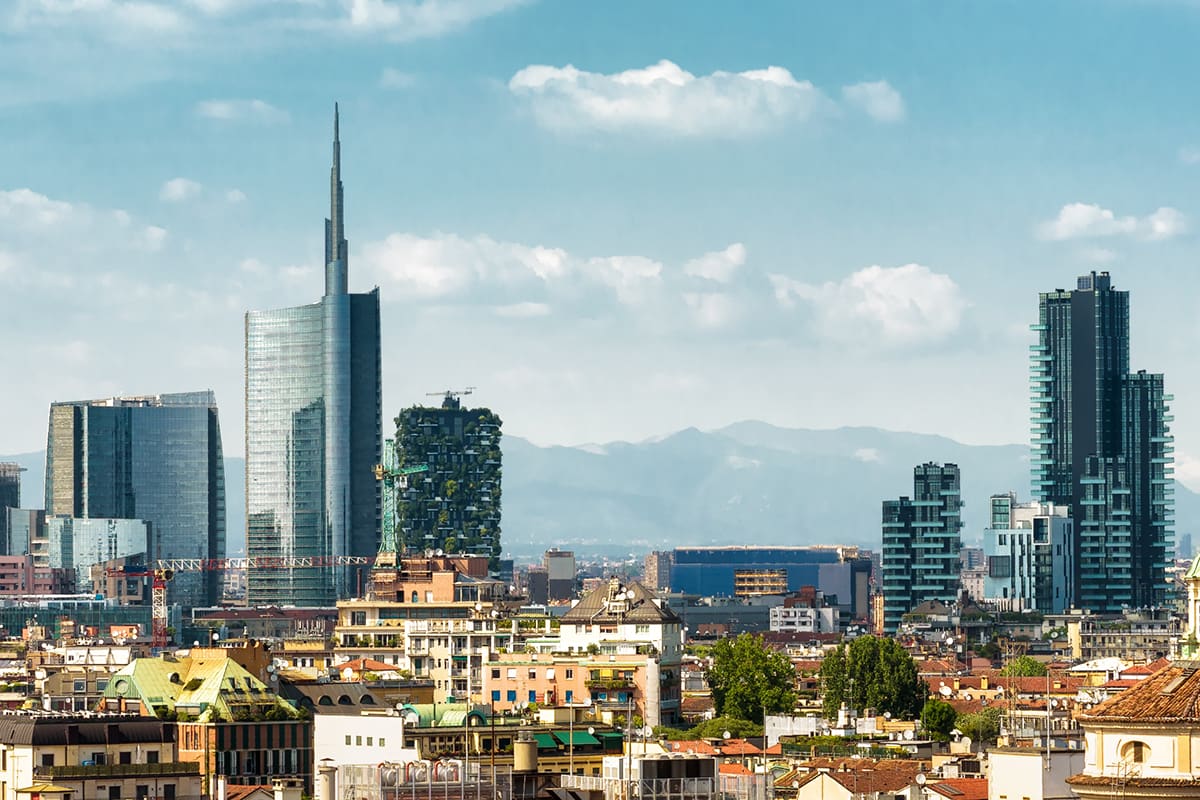Italy embraces flexible working with continued growth and the promise of more to come
From the Tuscan capital of Florence to the city of fashion that is Milan, Italy is in the midst of a flexible workspace revolution.
While the concept has been embraced by business and workers around the world – global real-estate giant Jones Lang LaSalle estimates a further increase of up to 30% per year for the next five years – Italy has gone a step further with its parliament approving new ‘smart working’ laws.
To illustrate the rate of growth, IWG launched its first Regus Centre in the country in 1997 and saw a steady expansion to ten sites in 2012. But in the last seven years that has rocketed to 55 centres and is due to become 60 by the end of this year.
Given its cosmopolitan and forward-thinking global reputation, it’s perhaps no surprise that Milan continues to lead the way as the country’s smart working capital, with 27 business centres, including the recently opened Milan Certosa, Milano Bisceglie and Milano Due, a total of 85,000 square metres of office space with 8,500 workstations.
In addition to its Regus sites, IWG’s Spaces facilities are also continuing their upward trend, with two sites in Milan now, as well as one in Rome.
“The office market in Italy is doing very well, especially in Milan,” says Mauro Mordini, Regus Country Manager in Italy. “In recent years we have experienced a real evolution. It is a particularly active period thanks to strong demand. Specifically, in the last year we have seen a growth trend particularly in Milan, but also in the rest of Italy. This growth goes hand-in-hand with the spread of smart working as a new working trend at national and international level.”
Flexible working is experiencing a boom in the Tuscan capital of Florence, too. The 2,000-square-metre Regus Firenze Libertà – set on the Viale Giacomo Matteotti, one of the main arterial thoroughfares in the heart of the city – is a prime example.
The new co-working space extends over five floors and has 51 private offices, 190 workstations, 28 co-working stations and three meeting rooms. All come with high-speed Wi-Fi and are fully furnished and equipped, with natural light flooding in from the inner courtyard. And there’s also a garden.
Such has been the level of demand for flexible working that the Italian parliament has approved ‘smart working’ legislation aimed at improving work-life balance and conditions for those working remotely – as well as reducing CO2 emissions, commuting time and under-utilised office space.
“A profound change is under way in the labour market and, consequently, there is an ever-increasing demand from companies that need to find new locations in tight deadlines and for limited periods of time,” says Mordini. “Thanks to technology, we work less and less from the same location, and often there is the need to use shared spaces where comparison is facilitated. In other cases, or at other times during the working day, there is a need to work in places that help with inspiration and concentration, where needed.”
Going forward, Mordini sees only continued growth in the Italian market, with the network continuing to spread and also embrace the franchising model – where businesses work closely with IWG to lease out their existing office space in a managed, serviced model.
This growth is an upward trend that Mordini is in no doubt bodes well for the country and its economy. “Our concept is to meet the needs of customer who wants to work dynamically all over the world, in the place that can best satisfy them in terms of productivity and effectiveness, as well as personally,” he says.
“For the future, the goal is continuous growth in the countries where we are already present. Parallel to the development of the widespread coverage at national level, through the franchising model, IWG’s great news for Italy.”
Learn more about how serviced offices and flexible working can help your business






